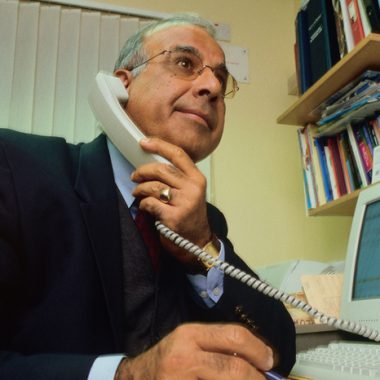GPs should contact all shielded patients as a ‘follow-up’ to letter, says NHS

Practices should contact all of their patients who are shielding from coronavirus (Covid-19) as a ‘follow-up’ to the NHS letter notifying them to stay at home for 12 weeks, NHS England has said.
During this follow-up conversation, GPs should discuss what shielding means and any changes to the patient’s ongoing care and treatment – including home visiting.
GPs should also confirm the patient has an arrangement in place for receiving medications, and also check they are aware of the Government’s support package, as part of the discussion.
NHS England laid out these latest instructions in an email bulletin sent to practices last night, which also stressed home visits ‘remain the preferred option where capacity allows’ to protect the health of shielded patients.
During a webinar last night, NHS England’s medical director for primary care, Dr Nikita Kanani, acknowledged the ‘majority’ of practices are already following up with shielded patients, but reminded others to ensure they do the same.
The bulletin said that the ‘majority’ of the work to establish which patients should be on the shielded list is now ‘near completion’.
It added: ‘Where you have not already done so, we are requesting that all practices make sure that they have contacted all the people on their patient list who are shielding as a follow-up to the letter.
‘These conversations should: (a) discuss what shielding means, (b) describe any changes to their ongoing care and treatment, including home visiting wherever this is clinically needed (c) confirm they have an arrangement in place for receiving their medications and (d) check that they are aware of the Government support offer.’
Speaking in a live webinar last night, NHS England’s Dr Kanani told GPs to ’make sure you have checked on [shielded] patients’, although she added that the ‘majority’ of practices are already doing this.
She said: ‘In our practice, one of our colleagues has just worked their way through the list, called them and checked in on them to make sure that they’re okay and they understand what’s going on.
‘If you haven’t, please do that, it’s really important to make sure that these patients aren’t sat at home in a particularly vulnerable position because they haven’t got contact with anyone.’
Earlier this month, GPs were asked to set up a dedicated home-visiting team for shielded patients – with staff who had not been exposed to patients with virus symptoms ‘if possible’.
The bulletin added that patients should not be brought into practice premises unless a designated site has been set up, where patients with Covid-19 symptoms are not seen.
It said: ‘Home visits remain the preferred option where capacity allows to protect the health of shielded patients.’
Meanwhile, NHS England added that a further 79,000 individuals have been identified as requiring shielding ‘as records and coding have been updated’ and that letters and text messages are being sent to this group from today.
The bulletin said: ‘Going forward, please review any new patients that contact you self-declaring to be clinically extremely vulnerable, adding any that – in your clinical opinion – meet the criteria to the list.’
It also reiterated that splenectomy patients should be included in the shielded patient list, despite earlier confusion over their inclusion.
NHS Digital will identify patients who have had a splenectomy and have been mistakenly removed from the list centrally from 29 April and will alert practices, who should then contact the patients to inform them of the error, it added.
It comes as the deadline for GPs to review the list of patients who have self-identified as requiring shielding was this week extended to the 28 April.
Dr Kanani apologised to GPs last week for NHS England’s handling of the shielded patient list amid criticism over tight deadlines and delays to the checking process.
NHS Digital has also apologised for sending nearly 11,000 shielding letters to dead people in error.
Pulse July survey
Take our July 2025 survey to potentially win £1.000 worth of tokens











